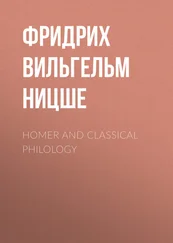Фридрих Ницше - Beyond Good and Evil
Здесь есть возможность читать онлайн «Фридрих Ницше - Beyond Good and Evil» весь текст электронной книги совершенно бесплатно (целиком полную версию без сокращений). В некоторых случаях можно слушать аудио, скачать через торрент в формате fb2 и присутствует краткое содержание. Год выпуска: 2014, Издательство: epubBooks Classics, Жанр: Философия, на английском языке. Описание произведения, (предисловие) а так же отзывы посетителей доступны на портале библиотеки ЛибКат.
- Название:Beyond Good and Evil
- Автор:
- Издательство:epubBooks Classics
- Жанр:
- Год:2014
- ISBN:нет данных
- Рейтинг книги:4 / 5. Голосов: 1
-
Избранное:Добавить в избранное
- Отзывы:
-
Ваша оценка:
- 80
- 1
- 2
- 3
- 4
- 5
Beyond Good and Evil: краткое содержание, описание и аннотация
Предлагаем к чтению аннотацию, описание, краткое содержание или предисловие (зависит от того, что написал сам автор книги «Beyond Good and Evil»). Если вы не нашли необходимую информацию о книге — напишите в комментариях, мы постараемся отыскать её.
Beyond Good and Evil — читать онлайн бесплатно полную книгу (весь текст) целиком
Ниже представлен текст книги, разбитый по страницам. Система сохранения места последней прочитанной страницы, позволяет с удобством читать онлайн бесплатно книгу «Beyond Good and Evil», без необходимости каждый раз заново искать на чём Вы остановились. Поставьте закладку, и сможете в любой момент перейти на страницу, на которой закончили чтение.
Интервал:
Закладка:
60. To love mankind FOR GOD'S SAKE—this has so far been the noblest and remotest sentiment to which mankind has attained. That love to mankind, without any redeeming intention in the background, is only an ADDITIONAL folly and brutishness, that the inclination to this love has first to get its proportion, its delicacy, its gram of salt and sprinkling of ambergris from a higher inclination—whoever first perceived and "experienced" this, however his tongue may have stammered as it attempted to express such a delicate matter, let him for all time be holy and respected, as the man who has so far flown highest and gone astray in the finest fashion!
61. The philosopher, as WE free spirits understand him—as the man of the greatest responsibility, who has the conscience for the general development of mankind,—will use religion for his disciplining and educating work, just as he will use the contemporary political and economic conditions. The selecting and disciplining influence—destructive, as well as creative and fashioning—which can be exercised by means of religion is manifold and varied, according to the sort of people placed under its spell and protection. For those who are strong and independent, destined and trained to command, in whom the judgment and skill of a ruling race is incorporated, religion is an additional means for overcoming resistance in the exercise of authority—as a bond which binds rulers and subjects in common, betraying and surrendering to the former the conscience of the latter, their inmost heart, which would fain escape obedience. And in the case of the unique natures of noble origin, if by virtue of superior spirituality they should incline to a more retired and contemplative life, reserving to themselves only the more refined forms of government (over chosen disciples or members of an order), religion itself may be used as a means for obtaining peace from the noise and trouble of managing GROSSER affairs, and for securing immunity from the UNAVOIDABLE filth of all political agitation. The Brahmins, for instance, understood this fact. With the help of a religious organization, they secured to themselves the power of nominating kings for the people, while their sentiments prompted them to keep apart and outside, as men with a higher and super–regal mission. At the same time religion gives inducement and opportunity to some of the subjects to qualify themselves for future ruling and commanding the slowly ascending ranks and classes, in which, through fortunate marriage customs, volitional power and delight in self–control are on the increase. To them religion offers sufficient incentives and temptations to aspire to higher intellectuality, and to experience the sentiments of authoritative self–control, of silence, and of solitude. Asceticism and Puritanism are almost indispensable means of educating and ennobling a race which seeks to rise above its hereditary baseness and work itself upwards to future supremacy. And finally, to ordinary men, to the majority of the people, who exist for service and general utility, and are only so far entitled to exist, religion gives invaluable contentedness with their lot and condition, peace of heart, ennoblement of obedience, additional social happiness and sympathy, with something of transfiguration and embellishment, something of justification of all the commonplaceness, all the meanness, all the semi–animal poverty of their souls. Religion, together with the religious significance of life, sheds sunshine over such perpetually harassed men, and makes even their own aspect endurable to them, it operates upon them as the Epicurean philosophy usually operates upon sufferers of a higher order, in a refreshing and refining manner, almost TURNING suffering TO ACCOUNT, and in the end even hallowing and vindicating it. There is perhaps nothing so admirable in Christianity and Buddhism as their art of teaching even the lowest to elevate themselves by piety to a seemingly higher order of things, and thereby to retain their satisfaction with the actual world in which they find it difficult enough to live—this very difficulty being necessary.
62. To be sure—to make also the bad counter–reckoning against such religions, and to bring to light their secret dangers—the cost is always excessive and terrible when religions do NOT operate as an educational and disciplinary medium in the hands of the philosopher, but rule voluntarily and PARAMOUNTLY, when they wish to be the final end, and not a means along with other means. Among men, as among all other animals, there is a surplus of defective, diseased, degenerating, infirm, and necessarily suffering individuals; the successful cases, among men also, are always the exception; and in view of the fact that man is THE ANIMAL NOT YET PROPERLY ADAPTED TO HIS ENVIRONMENT, the rare exception. But worse still. The higher the type a man represents, the greater is the improbability that he will SUCCEED; the accidental, the law of irrationality in the general constitution of mankind, manifests itself most terribly in its destructive effect on the higher orders of men, the conditions of whose lives are delicate, diverse, and difficult to determine. What, then, is the attitude of the two greatest religions above–mentioned to the SURPLUS of failures in life? They endeavour to preserve and keep alive whatever can be preserved; in fact, as the religions FOR SUFFERERS, they take the part of these upon principle; they are always in favour of those who suffer from life as from a disease, and they would fain treat every other experience of life as false and impossible. However highly we may esteem this indulgent and preservative care (inasmuch as in applying to others, it has applied, and applies also to the highest and usually the most suffering type of man), the hitherto PARAMOUNT religions—to give a general appreciation of them—are among the principal causes which have kept the type of "man" upon a lower level—they have preserved too much THAT WHICH SHOULD HAVE PERISHED. One has to thank them for invaluable services; and who is sufficiently rich in gratitude not to feel poor at the contemplation of all that the "spiritual men" of Christianity have done for Europe hitherto! But when they had given comfort to the sufferers, courage to the oppressed and despairing, a staff and support to the helpless, and when they had allured from society into convents and spiritual penitentiaries the broken–hearted and distracted: what else had they to do in order to work systematically in that fashion, and with a good conscience, for the preservation of all the sick and suffering, which means, in deed and in truth, to work for the DETERIORATION OF THE EUROPEAN RACE? To REVERSE all estimates of value—THAT is what they had to do! And to shatter the strong, to spoil great hopes, to cast suspicion on the delight in beauty, to break down everything autonomous, manly, conquering, and imperious—all instincts which are natural to the highest and most successful type of "man"—into uncertainty, distress of conscience, and self–destruction; forsooth, to invert all love of the earthly and of supremacy over the earth, into hatred of the earth and earthly things—THAT is the task the Church imposed on itself, and was obliged to impose, until, according to its standard of value, "unworldliness," "unsensuousness," and "higher man" fused into one sentiment. If one could observe the strangely painful, equally coarse and refined comedy of European Christianity with the derisive and impartial eye of an Epicurean god, I should think one would never cease marvelling and laughing; does it not actually seem that some single will has ruled over Europe for eighteen centuries in order to make a SUBLIME ABORTION of man? He, however, who, with opposite requirements (no longer Epicurean) and with some divine hammer in his hand, could approach this almost voluntary degeneration and stunting of mankind, as exemplified in the European Christian (Pascal, for instance), would he not have to cry aloud with rage, pity, and horror: "Oh, you bunglers, presumptuous pitiful bunglers, what have you done! Was that a work for your hands? How you have hacked and botched my finest stone! What have you presumed to do!"—I should say that Christianity has hitherto been the most portentous of presumptions. Men, not great enough, nor hard enough, to be entitled as artists to take part in fashioning MAN; men, not sufficiently strong and far–sighted to ALLOW, with sublime self–constraint, the obvious law of the thousandfold failures and perishings to prevail; men, not sufficiently noble to see the radically different grades of rank and intervals of rank that separate man from man:—SUCH men, with their "equality before God," have hitherto swayed the destiny of Europe; until at last a dwarfed, almost ludicrous species has been produced, a gregarious animal, something obliging, sickly, mediocre, the European of the present day.
Читать дальшеИнтервал:
Закладка:
Похожие книги на «Beyond Good and Evil»
Представляем Вашему вниманию похожие книги на «Beyond Good and Evil» списком для выбора. Мы отобрали схожую по названию и смыслу литературу в надежде предоставить читателям больше вариантов отыскать новые, интересные, ещё непрочитанные произведения.
Обсуждение, отзывы о книге «Beyond Good and Evil» и просто собственные мнения читателей. Оставьте ваши комментарии, напишите, что Вы думаете о произведении, его смысле или главных героях. Укажите что конкретно понравилось, а что нет, и почему Вы так считаете.












